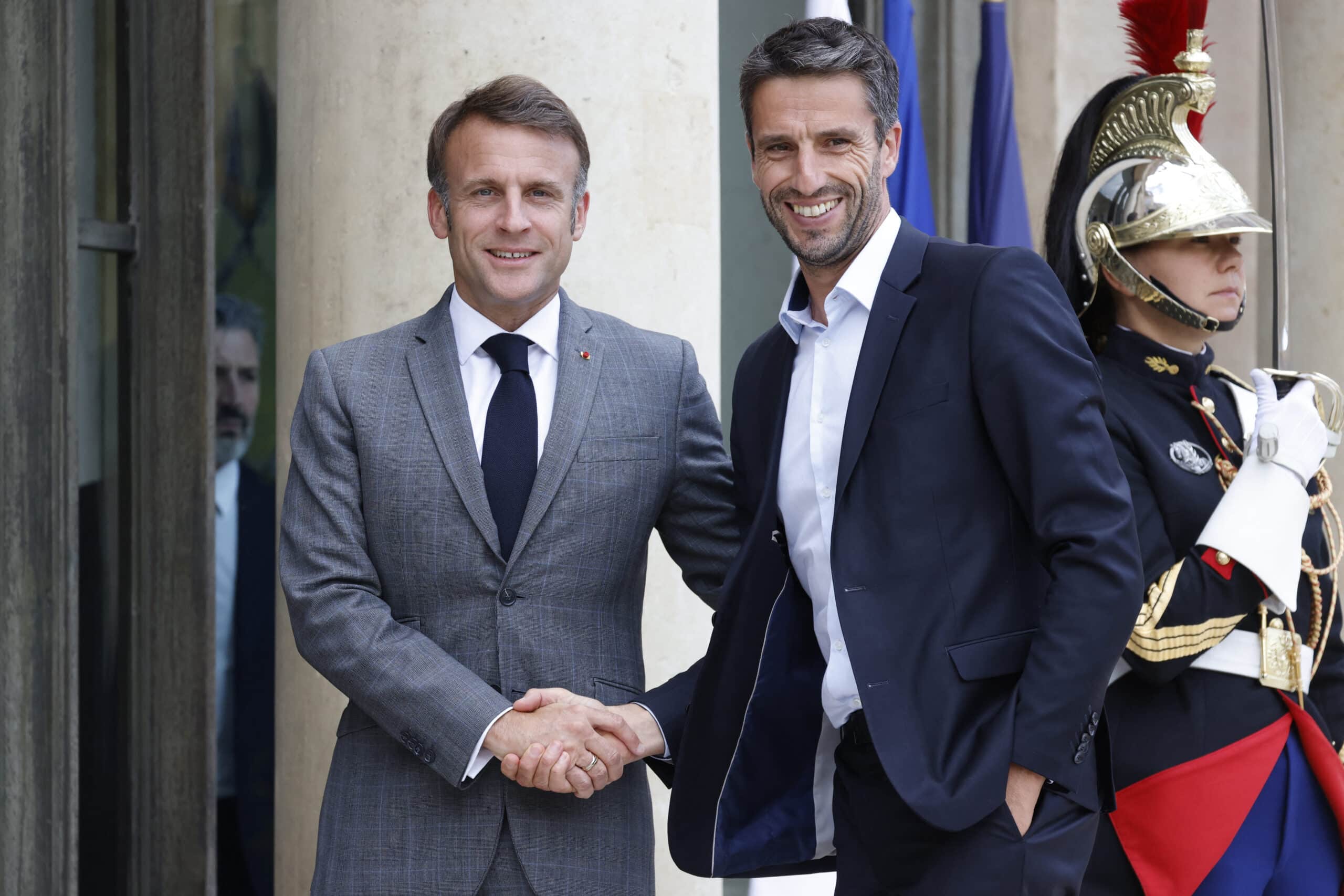
France’s President Emmanuel Macron (L) shakes hands with President of the Paris 2024 Olympics and Paralympics Organising Committee (Cojo) Tony Estanguet as he arrives for a meeting at the Elysee Presidential Palace in Paris on July 16, 2024, ahead of Paris 2024 Olympic and Paralympic games. (Photo by Ludovic MARIN / AFP)
Paris Olympics supremo Tony Estanguet said Sunday that the city was “ready” for the Games as he played down complaints from some residents and businesses about the impact of the event.
“We are ready as we head into the final phase,” Estanguet told a press conference in Paris, five days from the opening ceremony next Friday.
He added: “For as long as the closing ceremony hasn’t finished, we need to remain vigilant. But today we are exactly where we would have dreamed of being a few years ago.”
Finishing touches are being applied to the venues across the City of Light and thousands of athletes and officials are pouring in, while the weather has brightened up after months of rain.
In a further boost for organizers, the water quality of the river Seine — which is set to be used for outdoor Olympic swimming events — has also improved dramatically since the start of July.
READ: What we know about the Paris Olympics opening ceremony
“All the indicators for the Seine are positive at this stage,” Estanguet added.
The river is set to host the opening ceremony which will see 6,000-7,000 athletes sail down it on 85 barges and boats.
It will be the first time a Summer Olympics has opened outside the main athletics stadium, with up to 300,000 ticketed spectators set to watch from stands and on the river banks and another 200,000 expected to watch from the overlooking apartments.
Around 4,000 tickets are still available for the ceremony, Estanguet said.
“We’ve always tried to maintain as high a level of ambition as possible so that these Games make France shine,” Estanguet added.
READ: French troops secure Seine for Paris Olympics opening ceremony
‘Disruption’
The vast security operation for the opening ceremony is causing some friction, however, with large parts of central Paris along the banks of the river and around Olympic venues off-limits for most people.
Trade groups representing Paris shops, restaurants, bars and clubs complained on Friday that they were facing an “unprecedented slump in business and footfall”, blaming in part the “heavy security measures”.
“It was always a choice made in full conscience that the success of Paris 2024 would mean having the Games in the city,” Estanguet explained. “That was the completely unprecedented concept for Paris 2024.”
As well as the opening ceremony in the heart of the city, much of the sport is set to take place at temporary venues around Paris, with beach volleyball at the Eiffel Tower, archery at the Invalides and skateboarding at the Place de la Concorde.
“We can’t do it without some disruption. We can’t do it without some restrictions,” Estanguet said.
He thanked “those who have understood this because it’s really to honor our country in the most beautiful way.”
Around 45,000 members of the French security forces are set to be on duty on Friday when the Olympics kick off at 7:30 p.m. (1730 GMT).
READ: Paris Olympics: How to watch, when it starts, key dates
“Security was the number one priority for Paris 2024,” Estanguet said.
Cybersecurity is also a major concern, with a global IT outage last Friday caused by an update to CrowdStrike software leading to temporary disruption to accreditation system for the Games.
The International Olympic Committee has said it is bracing for disinformation attacks targeting the Paris Games following recent incidents blamed on Russia, in response to a near-ban on Russian athletes because of Moscow’s invasion of Ukraine.
In another development, a major French Jewish group on Sunday slammed a hard-left MP for saying Israeli athletes were not welcome in Paris because of the war in Gaza.
Yonathan Arfi, head of the Representative Council of Jewish Institutions in France (Crif), said on X that France Unbowed (LFI) lawmaker Thomas Portes was “putting a target on the backs of Israeli athletes”.
Portes had said at a rally in support of Palestinians that “Israeli sportspeople are not welcome at the Paris Olympic Games”.
Opposition to Israel’s actions in Gaza featured heavily in his party’s campaign for European elections last month.
Arfi said Israeli athletes were “already the most in danger at the Olympic Games”, recalling the 11 “murdered by Palestinian terrorists” at the 1972 Munich Games.
The territory’s Hamas-run health ministry said Sunday that almost 39,000 people had been killed in the fighting, which was sparked by the bloody October 7 attacks by Hamas.